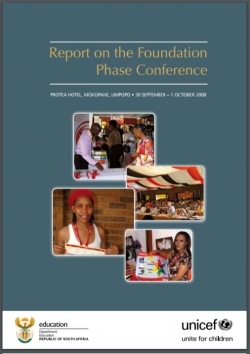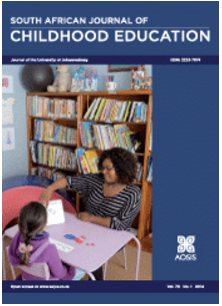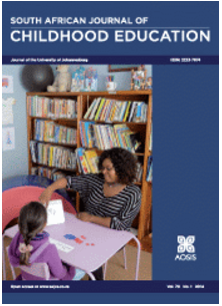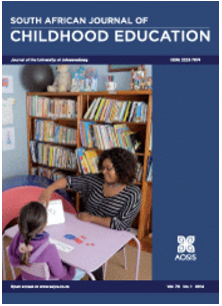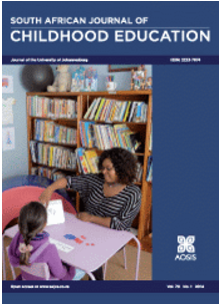South African Journal of Childhood Education 5(3):a376 Foundation-phase children’s causal reasoning in astronomy, biology, chemistry and physics
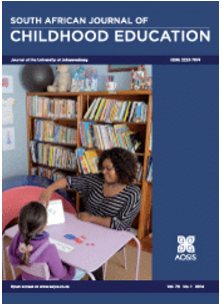
Type
E-Journal
Authors
ISSN
2223-7682
Category
ECCE, Foundation
[ Browse Items ]
Publication Year
2016
Publisher
Aosis OpenJournals, Durbanville, Cape Town, South Africa
URL
[ private ]
Pages
9 p.
Subject
Early childhood education, Primary education, Foundation Phase, Young children, Thinking, Science curriculum, Spontaneous reasoning, Teachers, Teaching, South Africa
Tags
Abstract
This study aimed at finding out how young children express their thinking about some of the themes in the early-grades school science curriculum. Foundation-phase children at a primary school in Soweto, Johannesburg, were interviewed after they had watched classroom demonstrations of the production of carbon dioxide gas, absorption of water and the propulsion of an inflated balloon and after a discussion about living organisms had been introduced. Interviews were conducted in each of four classes, ranging from grade R to grade 3, asking questions about what they had just observed in the four different lessons. The findings show that the children expressed their own ideas, but that they were using the discourse structure of causality, albeit that the content of the reasoning came from their naïve or intuitive theories. The article recommends that teachers in the primary school consider (and utilise) children’s spontaneous reasoning and naïve or intuitive theories of natural phenomena when they teach the natural science curriculum. This study has shown that, although early-grades children may lack formal science concepts, their ability to reason is developed sufficiently to grasp the causal relationships in natural phenomena. The question this research asks, ultimately, is, ‘How can some basic science concepts be woven into the curriculum of the entire foundation phase curriculum, integrating it with language and literacy, and especially with mathematics?’. The author argues that firmer conceptual knowledge of science can be developed in younger children in the early grades because the thinking mechanisms for understanding and reasoning seem to be in place at a young age.
Description
Article
Number of Copies
1
| Library | Accession No | Call No | Copy No | Edition | Location | Availability |
|---|---|---|---|---|---|---|
| Main | 624 | 1 | Yes |
